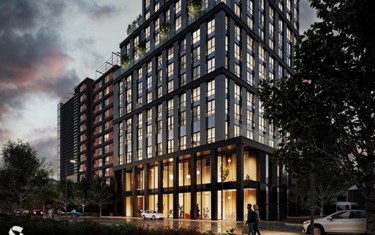Marwah Aziz is an Urban Designer & EDI partner at Egis
 The UK has witnessed a growth in ethnic population since the mid-2000s as a result of increased migration, particularly migrants seeking refuge. Inevitably, migrants need time for adjustment and integration due to barriers such as language, cultural understanding, and economic ability. The scale of immigration certainly has an impact on the economy, a topic requiring a holistic approach to its social and economic factors because receiving human figures cannot be sustained without consideration of adequate economic growth.
The UK has witnessed a growth in ethnic population since the mid-2000s as a result of increased migration, particularly migrants seeking refuge. Inevitably, migrants need time for adjustment and integration due to barriers such as language, cultural understanding, and economic ability. The scale of immigration certainly has an impact on the economy, a topic requiring a holistic approach to its social and economic factors because receiving human figures cannot be sustained without consideration of adequate economic growth.
Another layer to the issue – the focus of this blog – is the professional migrants mainly in the construction industry who face systematic barriers to employment in the U.K market. They face great difficulty in overcoming obstacles like the lack of local experience/qualifications. As a result, they may fall out of work or work in a different domain, depriving the UK market – which currently faces a skills shortage – from their experience and losing part of their identity. Additionally, this may have a huge impact on their self-worth and identity.
In March 2022, Government published a paper, titled Inclusive Britain, that aimed at eliminating prejudice and discrimination; promoting equality of opportunity and encouraging aspiration; and fostering a sense of inclusion and belonging to the UK. It presented an opportunity to create a meaningful change that would benefit the country as a whole and not only minorities, and would require all government initiatives to have concrete outcomes and indicators of success. Therefore, ensuring that there are fair and equal opportunities for all candidates during the whole recruitment and selection process is substantial.
Inclusive recruitment lies at the heart of creating strong self-worth and a sense of belonging to a community and a place. Employment has shown to be the biggest factor in successful integration. It not only enables financial self-reliance but it is a source of social interaction that offers opportunities for communication, where language skills can be improved, local culture can be understood, and confidence regained. Additionally, it avoids creating smaller isolated social spheres within the bigger community.
In today’s diverse and interconnected world, companies that want to succeed need a diverse workforce with a wide range of experiences, ideas and creativity. To achieve a diverse pipeline of talent, companies need to have Equality, Diversity and Inclusion at the core of their business model and not a façade to tick boxes. They must review their recruitment procedures and challenge stereotypes of who they believe is the best person for the job, creating fair and equal opportunities in every stage of recruitment.
Egis values its people, is EDI committed and transparent. It is a company that understands its corporate social responsibility, making it a fast growing company and a wonderful place to be part of. A proud a winner of Women in Rail company award 2022, Egis collaborates with social enterprises, and has a huge mutual focus on social and economic inclusion using impactful funding models that provide significant support to employment, with the latter working as a medium that educates employers about the opportunity in hiring migrants seeking refuge who come with different skills/views and equally supporting candidates to better their portfolio and speed their job search process.
As an Urban Designer with an overseas architecture degree and an FIR ambassador, I strongly believe creating healthy, economically active and productive communities starts from fairness in policies, procedures and practices, which cannot be viable without collaborative efforts of government, organisations, social enterprises and equally individuals to ensure all segments of society are fully empowered to contribute to the country. I also believe the role of planning is of huge importance. Sue Manns, RTPI president in 2020, noted the significance of representing society to maintain a sustainable planning profession in the CHANGE action plan.
In a time of rapid change in demographics, diverse population and technological advancement, planning can lead the way of inclusive and fair change, creating a great future for a country with a complex and rich history.


